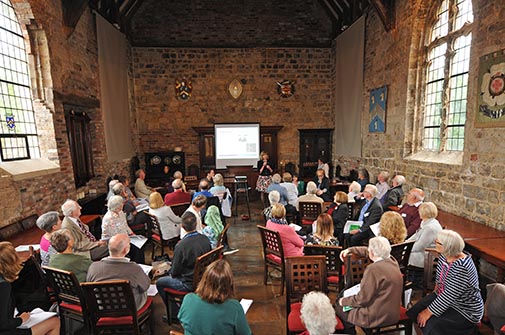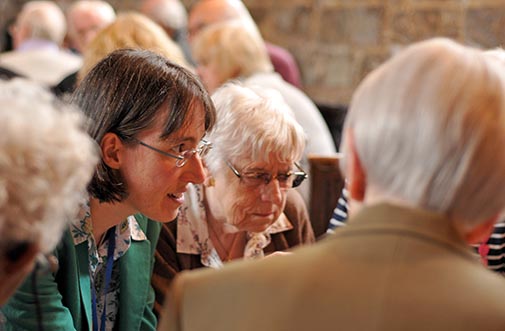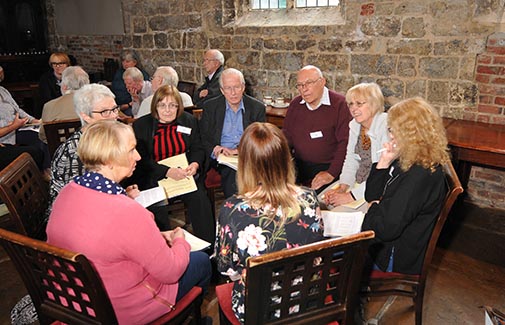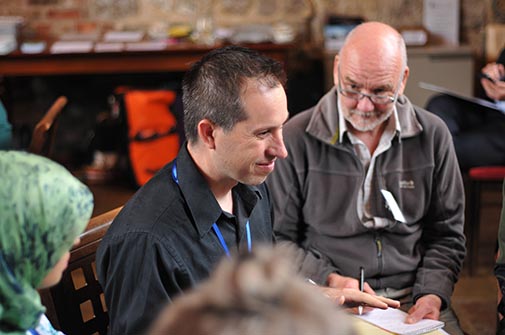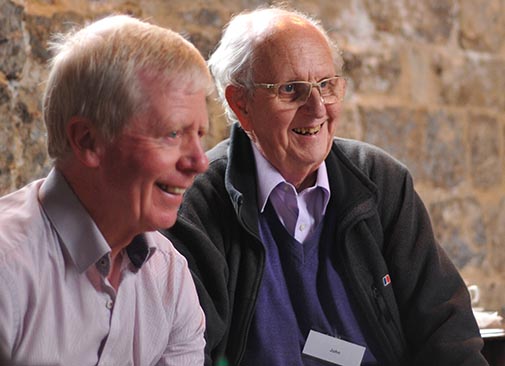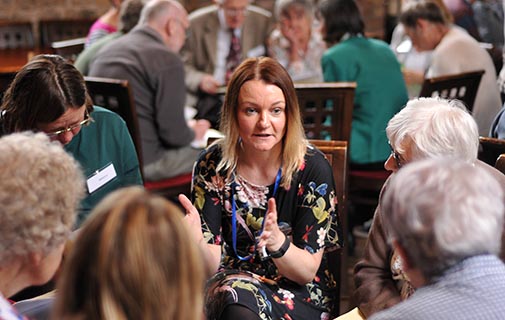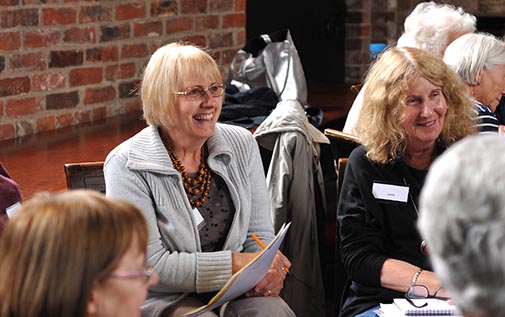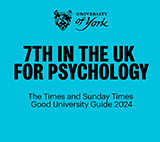
Brain health in later life
Posted on 11 July 2017
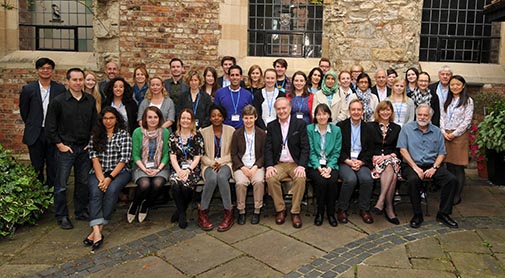
Researchers from the USA, UK and Europe met in York to share the latest evidence as to how and why our thinking skills change as we age and how we can stay sharp in later life. After the academic sessions, 36 local people aged 60 plus joined academics for a 'speed science' event, in which the older people each met five researchers in 15-minute quick-fire sessions to discuss their findings and quiz the researchers on how to stay sharp as we grow older.
The University of York held the events in partnership with Age UK, with funding from the Economic and Social Research Council.
The University’s Dr Fiona McNab said: "Both the research seminar and Speed Science were a huge success. The research seminar brought together researchers who address different aspects of cognitive ageing, and use very different methods and approaches. This created the perfect opportunity for us to learn from each other, and explore ways in which we can benefit from combining our approaches and working together. The discussions were lively and, as well as giving us a useful overview of the state of research in this area, the event has sparked a number of interesting ideas for new projects and collaborations."
Age UK’s Chief Scientist, Professor James Goodwin, said: "The importance of this seminar was not just that it presented new findings in a new and important area of science – how our brain and minds age – but that we were able to identify how these findings could be developed into real, life-changing, tangible benefits which will improve later life."
The Speed Science session started with a presentation by Libby Archer, a Research Manager at Age UK. She outlined ways in which people can improve their ability to stay sharp in older age, and spoke about the 'Staying Sharp' webpages on Age UK’s website. The discussions that followed between researchers and older people were great fun for all involved.
Dr McNab said: "The questions I was asked about my research and some challenging questions about how the brain works made me take a useful step back and think about the bigger picture, as well as the impact research findings can make on daily life. The many positive comments we received from the participants confirmed that they enjoyed it and found it useful too."
Libby Archer said: "We all want to stay healthy and active in later life, so we’re interested in keeping fit mentally as well as physically. Every place at the Speed Science event was snapped up by older people from in and around York, underlining people’s appetite for knowing how we can protect our brains and thinking skills – and for talking to researchers directly."
The researchers who starred in speed science included:
Assistant Professor Joaquin Anguera, University of California, San Francisco
Assistant Professor Alan Gow, Heriot-Watt University, Edinburgh
Professor Arthur Kramer, University of Illinois at Urbana-Champaign
Dr Fiona McNab, University of York
Dr Sarah MacPherson - University of EdinburghVisit Age UK’s Staying Sharp web pages: http://www.ageuk.org.uk/health-wellbeing/staying-sharp/
